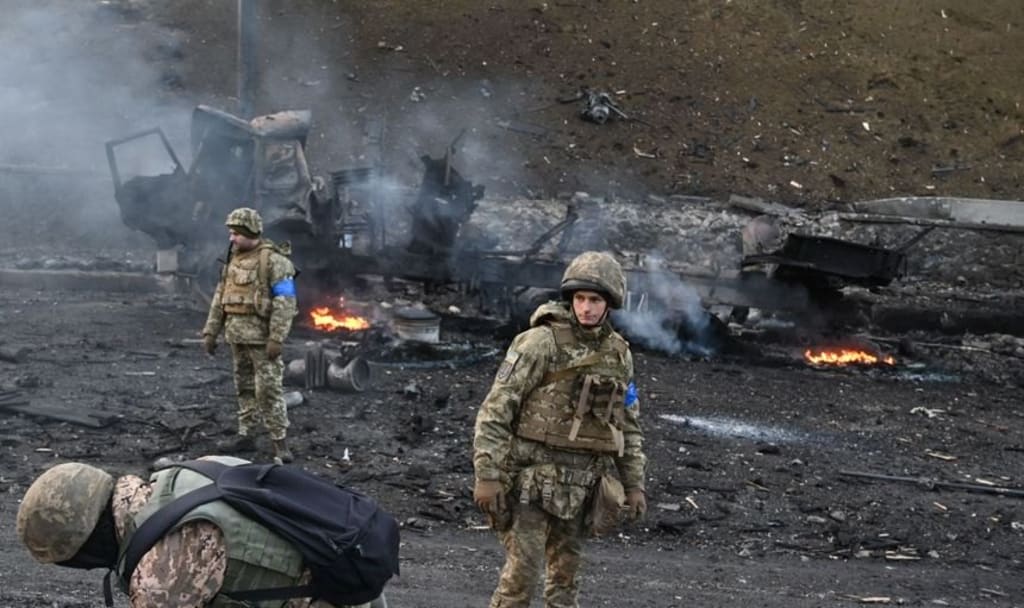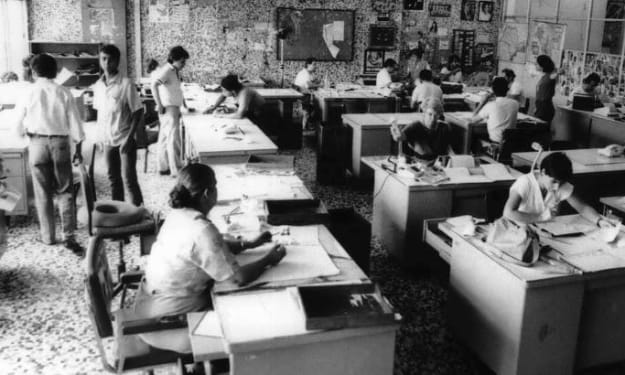Content warning
This story may contain sensitive material or discuss topics that some readers may find distressing. Reader discretion is advised. The views and opinions expressed in this story are those of the author and do not necessarily reflect the official policy or position of Vocal.
The real cause of Russia's war against Ukraine.
Russia's war against Ukraine is a complex conflict with deep causes. There is no easy answer to the question about the true cause of war. However, the political, economic, military and personal factors mentioned in this text played an important role in the escalation of the conflict.

The real cause of Russia's war against Ukraine.
Russia's war against Ukraine, which began on February 24, 2022, is a complex conflict with deep-rooted causes dating back to the 19th century. However, it is possible to identify four main reasons for the conflict: political, economic, military and personal.
Political motives.
The main political reason for the war is NATO's expansion into Eastern Europe. Russia sees NATO as a threat to its security, and fears that Ukraine's membership of the Western military alliance could lead to a NATO military presence on the Russian border.
Another political motive is the dispute over influence in Ukraine. Russia considers Ukraine to be part of its sphere of influence, and is unwilling to accept the country moving closer to NATO or the European Union.
Economic motives.
Russia also has economic interests in Ukraine. The country is an important supplier of natural gas and oil to Russia, and Russia has interests in investments and infrastructure projects in Ukraine.
Military motives.
Russia also has military motives for attacking Ukraine. Russia wants to prevent Ukraine from becoming a military threat, and fears that the country could become a starting point for attacks against Russia.
Personal motives.
Russian President Vladimir Putin also has personal reasons for attacking Ukraine. Putin believes that Ukraine is a part of historic Russia, and he wants to restore Russia's power and influence in the region.
Vladimir Putin and Volodymyr Zelensky.
The two leaders of the countries involved in the war also play an important role in events. Vladimir Putin is an authoritarian leader who is willing to use force to achieve his goals. Volodymyr Zelensky is a leader who is fighting to defend his country from Russian invasion.
Russia's war against Ukraine is a complex conflict with deep-rooted causes. It is a conflict that has the potential to change the balance of power in Europe, and could have long-term consequences for global security and stability.
The role of the UN in the conflict.
The United Nations (UN) has played an important role in the conflict in Ukraine. The UN condemned the Russian invasion and demanded that Russia withdraw its troops. The UN has also provided humanitarian assistance to Ukraine, including food, water and shelter.
However, the UN has been criticized for its inability to stop the war. Russia is a permanent member of the UN Security Council, which gives it veto power over any resolution that could impose sanctions or other measures against the country.
The role of world leaders.
World leaders have also played an important role in the conflict in Ukraine. US President Joe Biden and other Western leaders have imposed sanctions on Russia and provided arms and military assistance to Ukraine.
French President Emmanuel Macron and German Chancellor Olaf Scholz tried to negotiate a ceasefire, but their attempts were unsuccessful.
China's president, Xi Jinping, has maintained an ambiguous position on the war. China has criticized Western sanctions against Russia, but has also expressed concern about the conflict.
The future of the conflict.
It is difficult to say how the conflict in Ukraine will end. However, it is clear that the conflict will have a profound impact on Europe and the world.
The war has already caused huge human and material losses. It has also affected trade, energy and international security. The war has also increased tension between Russia and the West.
The war in Ukraine is a complex conflict with deep-rooted causes. There is no easy answer to the question of how the conflict will end.
Russia's war against Ukraine is an event of great historical importance. The conflict has the potential to change the balance of power in Europe and the world.
The conflict is a challenge to the rules-based international order. The UN has proved unable to stop the war and world leaders have struggled to find a solution.
The conflict is likely to continue for some time. The outcome of the war is still uncertain, but it is clear that the conflict will have a profound impact on the world.
Here are some factors that could affect the future of the war in Ukraine:
Ukraine's ability to resist the Russian invasion. Ukraine has heroically resisted the Russian invasion, but it's hard to say how long the country will be able to hold out.
Russia's willingness to continue the war. Russia is facing heavy economic sanctions and military losses. It is possible that Russia will decide to end the war if conditions are unfavorable.
The intervention of other countries. It is possible that other countries will intervene in the war, either to support Ukraine or Russia. External intervention could change the course of the war.
About the Creator
josias alves
Além de contar histórias, Josias também gosta de falar sobre curiosidades históricas. Ele acredita que a história é cheia de fatos interessantes que muitas vezes passam despercebidos.






Comments
There are no comments for this story
Be the first to respond and start the conversation.